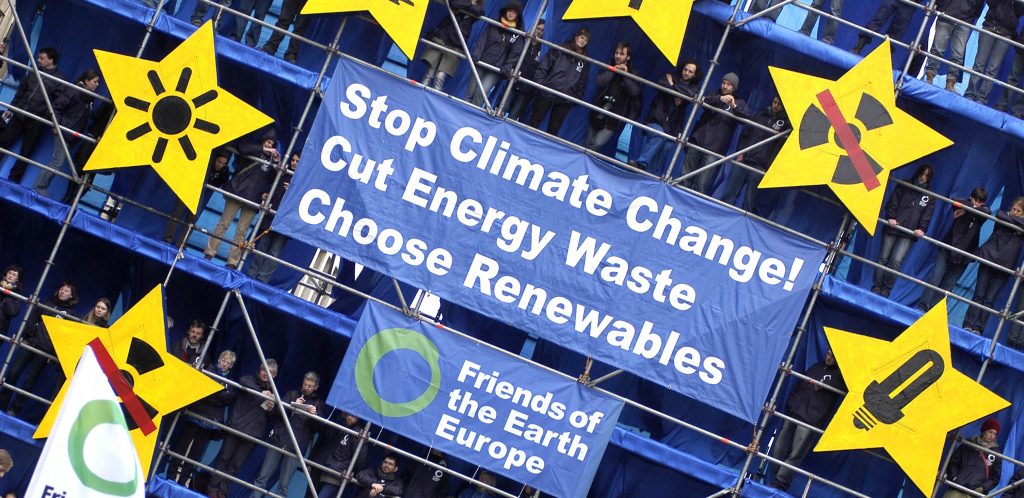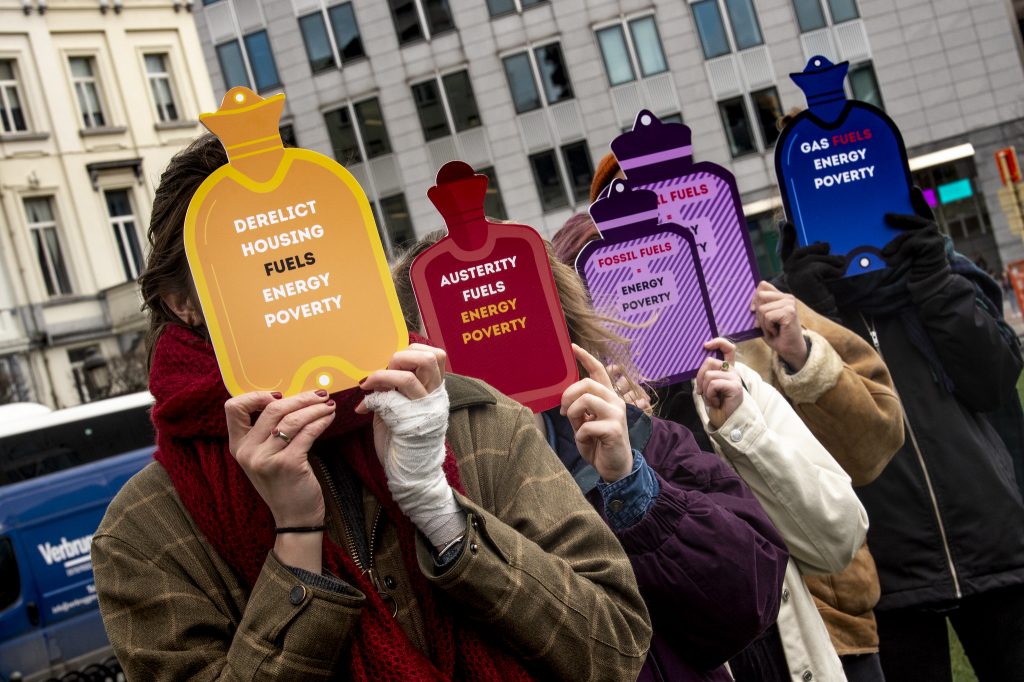Brussels, 15 February – EU Energy Ministers have missed a chance to guide Europe out of its dirty energy trap, Friends of the Earth Europe warned today. In their contribution to the proposed EU energy “Action Plan”, Ministers agreed to only weakly promote renewable energy and shied away from any concrete commitment to cut energy waste.
Jan Kowalzig, Climate and Energy Campaigner at Friends of the Earth Europe, said:
“Europe’s Energy Ministers have missed their opportunity to improve on the European Commission’s flawed proposal for Europe’s future energy policy. To limit climate change and secure our energy supply, Europe needs a fundamental shift away from dirty fossil fuels towards massive uptake of renewable energy. But, as the weak agreement on renewable today shows, governments keep us locked into dirty energy. This must be fixed by EU Heads of States when they meet for their Spring Summit in March.”
The Energy Ministers agreed on a target to meet 20 percent of primary energy with renewable energy by 2020. Friends of the Earth believes the target should be higher [1] and criticised its non-binding nature, as Ministers have avoided any obligation to actually meet the target. And one broad target for overall energy use will not be sufficient to stimulate investment and technological advancement across a range of varied sectors like electricity generation or heating and cooling – a problem that even the European Commission itself has acknowledged. [2]
“Europe is waking up to the fact that renewable energy is clean, safe and economically viable, so a wise investment. But as it is a young market, governments need to secure investor confidence. Just an overall target for the share of renewable energy in the total energy mix is too vague to give clear guidance. We also need binding and separate sub-targets for electricity production and the heating and cooling sector.” Mr Kowalzig added.
But veering off in a dangerous direction, Ministers agreed on a target to cover 10 percent of all transport fuels from biofuels by 2020. Friends of the Earth Europe has denounced setting such a target as dangerous, highlighting the grave environmental and social damages currently caused by biofuels production in producer countries [3]. Instead, strict sustainability criteria and enforcement mechanisms need to be developed before the EU continues to promote the widespread use of biofuels. Any target set by the EU should be based on what can actually be produced while meeting such criteria.
On energy efficiency, the Energy Ministers murmured approval for aiming to reduce energy consumption by 20 percent by 2020 compared to business-as-usual. But while they acknowledge Europe’s potential to cut energy waste by this much, governments have so far failed to make it an actual target. No concrete commitment by Member States have been made that they will actually take action to achieve this 20 percent saving.
Improving the functioning of the internal energy markets is a central concept in the proposed energy Action Plan. According to Friends of the Earth Europe, this would mean, first and foremost, removing the billions of Euros of government subsidies for fossil and nuclear energy and the huge external costs of conventional energy production that are currently shouldered by society.[4] These direct and indirect subsidies will continue to distort the market, disadvantaging renewable energy.
In the weeks before the finalisation of the energy Action Plan at the EU Spring Summit on 8th-9th March, European citizens are condemning fossil fuels and nuclear power and endorsing renewable energy and energy efficiency. In public actions organised by Friends of the Earth groups, people are adding their signatures to 2m-high golden stars symbolising sustainable energy options. These stars will be incorporated into a large installation of a mock-EU flag outside the EU Summit on 9th March.
Outside the Energy Council today, the two national member groups of Friends of the Earth in Belgium displayed their signature-laden energy star for the attention of the Belgian Energy Minister Marc Verwilghen. In the presence of the Grim Reaper and amongst an array of radioactive barrels, the Belgian Friends of the Earth groups pushed their Energy Minister to take nuclear power out of the EU’s future energy policy and commit to a phase out of nuclear power in Belgium.
***
NOTES:
[1] The EU is capable of achieving 25 percent renewable share given the technological improvements and opportunities that exist. (“Target 2020 – Policies and Measures to reduce GHG in the EU”; Wuppertal Institute and WWF 2005; seehttp://assets.panda.org/downloads/target_2020_low_res.pdf)
And this week, the European Parliament adopted a resolution calling for a target of 25 percent renewable share.
[2] The European Commission’s own impact assessment of the proposed “Renewable Energy Roadmap”concludes that failing to agree sector-specific targets will delay technological development and commercial deployment of renewable energies and increase climate change abatement costs in the long-term. It notes that “a single broad target is too unfocused and would fail to provide sufficient guidance and certainty to businesses operating in specific sector of the market.”
See ‘Renewable Energy Roadmap – Impact Assessment’, SEC (2006) 1719.
And this week, the European Parliament adopted a resolution calling for sector specific targets for heating and cooling and electricity.
[3] For example, see:http://www.unep.org/grasp/docs/2007Jan-LastStand-of-Orangutan-report.pdf [4] See for example European Environment Agency: Energy Subsidies and Renewables in Europe, at http://reports.eea.eu.int/briefing_2004_2/en







